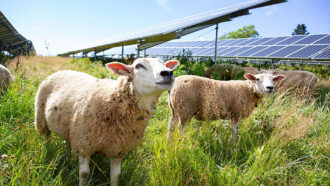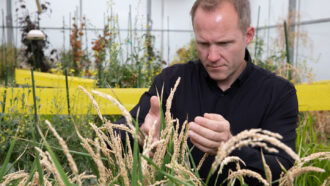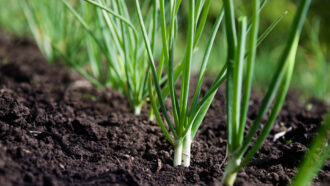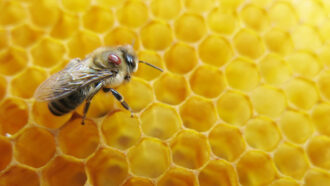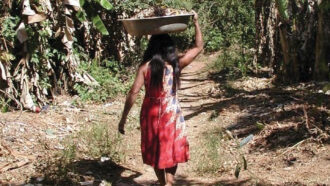Cow dung spews a climate-warming gas. Adding algae could limit that
Red algae, a type of seaweed, dramatically cuts how much methane the poop makes
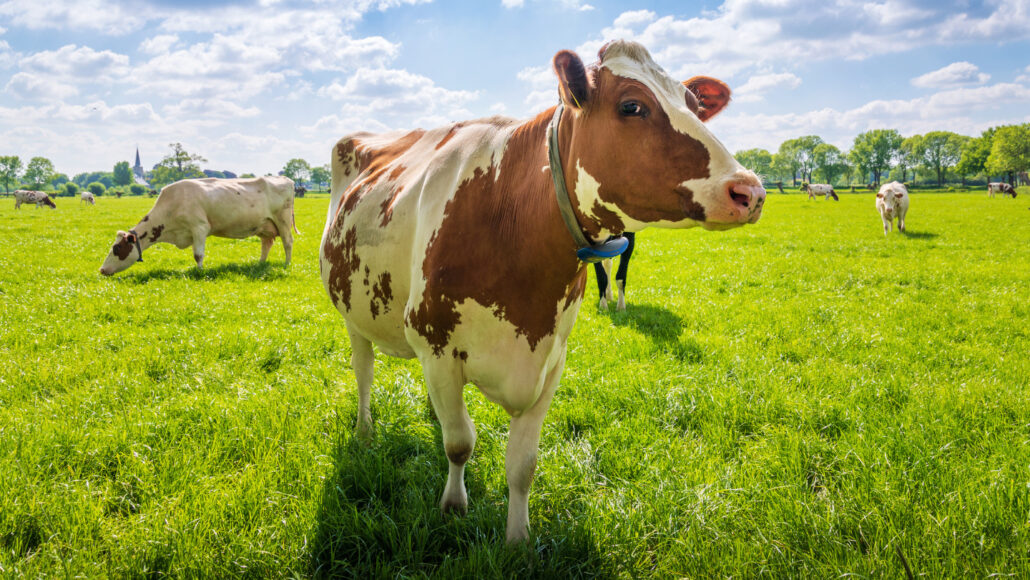
Methane contributes to climate change, and cows produce a lot of it. The bacteria in their guts produce methane that comes out in their burps and poop.
George Pachantouris/Moment/Getty Images
Listen to this story:
Have feedback on the audio version of this story? Let us know!
This is another in our series of stories identifying new technologies and actions that can slow climate change, reduce its impacts or help communities cope with a rapidly changing world.
Cows — our favorite source of cheese, milk and burgers — have a methane problem. Their burps and poop put a lot of this potent greenhouse gas into the environment. But adding red algae to cow feces might help.
In a new study, this treatment eliminated much of the gas from the cowpats. This suggests a new way to cut the climate-warming impact of cows.
Scientists shared their findings July 13 in Frontiers in Sustainable Food Systems.
Cows raised for food and milk contribute nearly one-fourth of the world’s methane emissions. Bacteria in the animals’ guts make the gas during digestion. Cows burp out most of that gas. Their poop emits a smaller amount of the gas as the feces break down.
When it comes to methane from poop, dairy cows tend to be the big problem, says Sara Place. She was not involved in the study. But as an animal scientist at Colorado State University in Fort Collins, she knows about such issues.
Dairy farmers tend to raise cows — and their poop — in places where soil levels of oxygen are low. That’s an environment that methane-making bacteria love. In contrast, cows raised for beef tend to live, burp and poop in open pastures or dry feedlots. Their higher soil-oxygen levels don’t support methane-making microbes nearly as well.
Researchers had been seeking ways to lower the methane spewed by cow poop. They’ve now found help from a seaweed known as Asparagopsis taxiformis. This alga grows in tropical oceans.
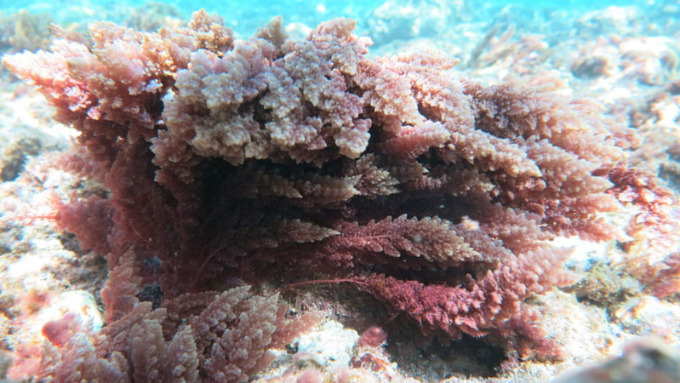
The role of bromoform
Earlier studies showed that a chemical in this seaweed — bromoform — shuts down methane-making activity by bacteria in the cows (and their feces). Adding a pinch of the algae to the cow’s feed, just half a percent, dropped by some 65 percent how much methane gas the gut microbes made.
But that approach would also leave the algae and bromoform in the cow. And that worried scientists.
Bromoform is a possible human carcinogen, the U.S. Environmental Protection Agency finds. So dairy cows fed this algae might later shed toxic levels of bromoform in their milk. The algae also could increase iodine in milk and beef. And that might mess with a diner’s thyroid. (Hormones made by that organ in the neck control how animals use food for growth.)
Mohammad Ramin works at the Swedish University of Agricultural Sciences in Umeå. This animal scientist is part of a team that had been looking for a way to avoid some of those human risks from algal chemicals. Their idea: Add the seaweed just to cow poop.
For its new study, the team collected cowpats from four dairy cows. Two cows had eaten feed treated with the algae. Two hadn’t. Back in the lab, the scientists split each cowpat. They added seaweed to one part and left the rest of the dung alone. Then, all these feces were allowed to slowly decompose for nine weeks.
Treating the cow’s feed with the seaweed did initially lower the methane gas emitted from fresh feces. But once the poop began to break down, fecal microbes pumped out lots of the gas anyway. In the end, eating algae didn’t drop a cow’s fecal production of methane gas.
What did help: Adding the algae to the cowpats lowered by some 44 percent how much methane gas they ultimately spewed.
Still a role for algae in cow feed?
The new study provides a solution to an understudied part of the cow-methane problem, says Christopher Glasson. He’s a chemist at the University of Waikato. It’s in Tauranga, New Zealand. Glasson did not take part in the new study. But he does study chemicals derived from seaweed.
As good as it looks, the red-algae treatment may prove too expensive, he suspects, “due to the cost of [making] the seaweed.”
And, Glasson adds, don’t rule out treating cow feed. The new findings suggest that seaweed will still be effective at suppressing methane in a cow’s gut — and burps. New technologies, for instance, might extract certain chemicals from the seaweed and feed just these to cows, Glasson says. That might limit the risk of bromoform and iodine ending up in people.
Finally, a little methane in poop may not be all bad, Place says. Some scientists have begun trapping the methane gas emitted by poop as an energy source. It’s known as biogas. So if feeding algae to cows lowers their gut methane, and biogas can be collected from any poop, she says these treatments might prove a possible two-fer win for farmers.


